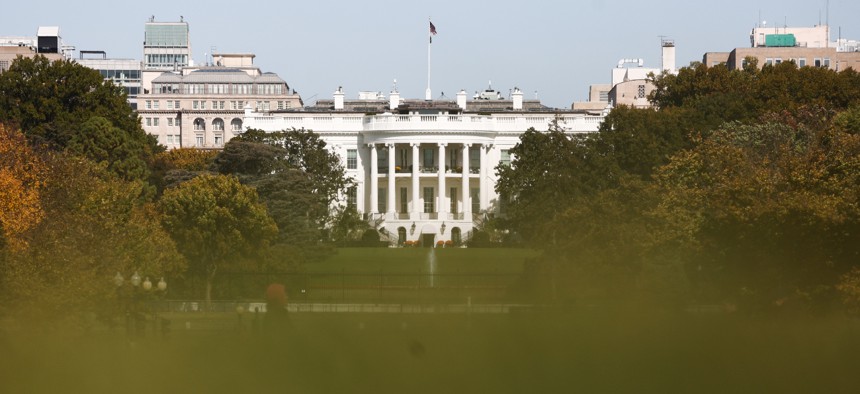The Biden Administration Will Allow Agencies to Appoint Some Employees Into 10-Year Temporary Jobs

Though limited for now to employees in STEM jobs, the Office of Personnel Management left the door open to eventually making far more positions eligible for extended appointments. Jakub Porzycki/NurPhoto via Getty Images
The rule finalizes a proposal first put forward by the Trump administration.
The Biden administration will allow agencies to hire employees in certain positions on a temporary basis for up to 10 years, more than doubling the current cap limiting the assignments for those workers.
The Office of Personnel Management issued the rule on Thursday, finalizing a proposal first put forward by the Trump administration. The rule will enable federal agencies to appoint employees in STEM jobs for a decade. OPM said the change would give agencies more flexibility when tackling long-term science, technology, engineering and mathematics projects. Previous regulations required agencies to get special permission from OPM to keep any term employee on staff for longer than four years.
Viet Tran, an OPM spokesman, said the rule showed the administration’s “commitment to STEM hiring.” He added it would allow for more federal, rather than outsourced, hiring.
“With this final rule, agencies have more flexibility and support (and less administrative burden) to hire employees—rather than contractors—for non-permanent STEM positions that agencies expect from the outset to last longer than 4 years but not more than 10 years,” Tran said. “This is another tool to help agencies better compete for talent.”
The proposed rule was pending for more than two years as OPM weighed its priorities in the new administration and comments from a dozen groups and individuals. Several of those comments, including two from federal employee unions, criticized the rule for undermining civil service hiring rules and the benefits provided to regular, career workers. Term employees—who are not considered career personnel—can often be hired outside of the typical competitive process, making it easier for agencies to onboard applicants through the bypassing of normal hurdles.
OPM pushed back on those concerns, however, promising to ensure “the appropriate use and intent of this hiring authority.”
“There will be robust OPM oversight regarding the use of this 10-year term hiring authority,” OPM said, adding it was “not intended to be a substitute for regular agency hiring but is instead intended to supplement existing hiring authorities.”
OPM noted that no appointments made under the authority will extend beyond 10 years, but said it would provide workers—and agencies—with more stability.
“By providing uninterrupted employment for up to 10 years, this flexibility will lessen the likelihood that a time-limited employee appointed under the current rules will leave an existing term position due to uncertainty over whether the position will be extended,” OPM said. “This outcome promotes retention of these employees which leads to continuity during project work and thus benefits both agencies and employees alike.”
OPM has also announced its intent to make temporary and seasonal employees eligible for dental and vision insurance benefits, though that rule is not yet finalized. Non-permanent feds only won regular health care under the Federal Employees Health Benefits Program in 2015.
Due to concerns from commenters, OPM said it was limiting the 10-year appointments to only those in STEM positions. Initially, it had also intended to include employees necessary to stand up, operate and close out time-limited federal offices. The agency left the door open to eventually making far more positions eligible for extended appointments.
“If we see an increased demand from agencies for longer term appointments in occupations not covered by this final rule, and we see no significant abuse or negative effects on the federal workforce from this delegation, we will consider expanding the scope of occupations in the future,” OPM said.






